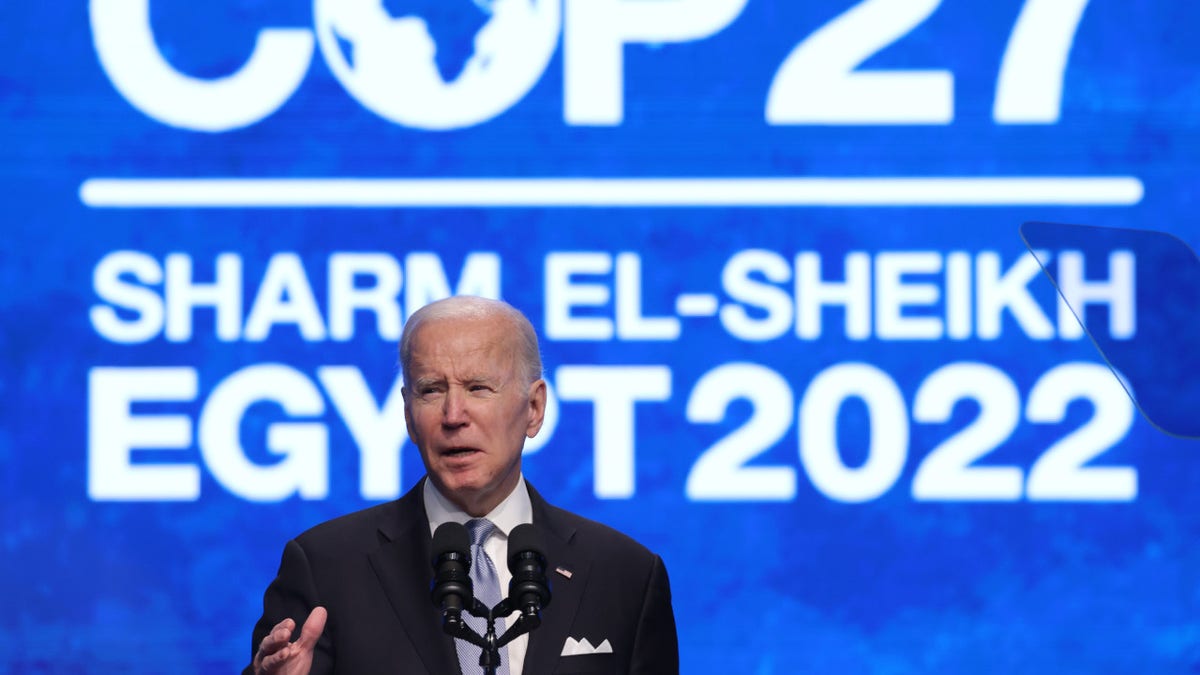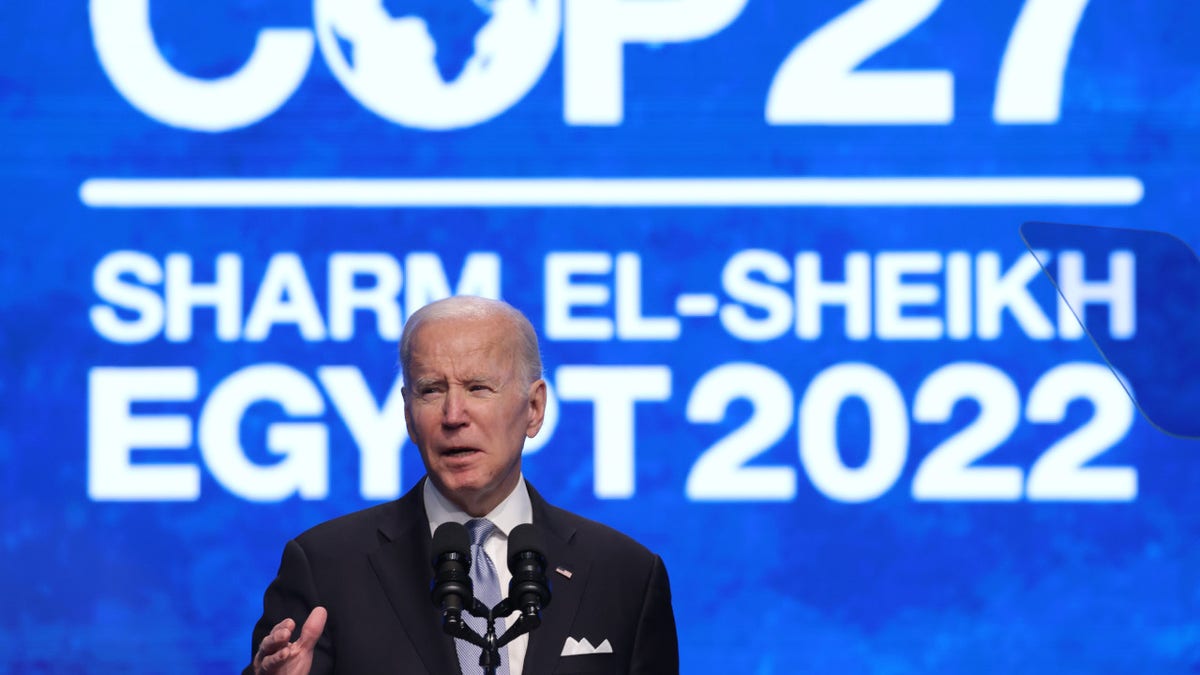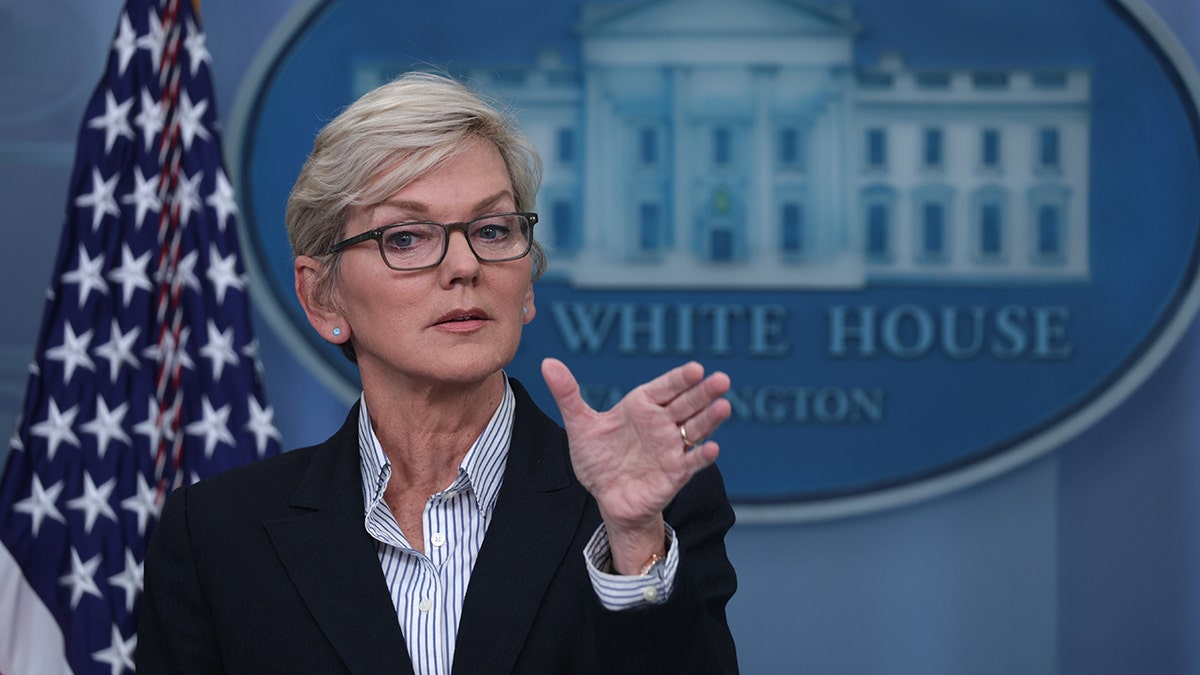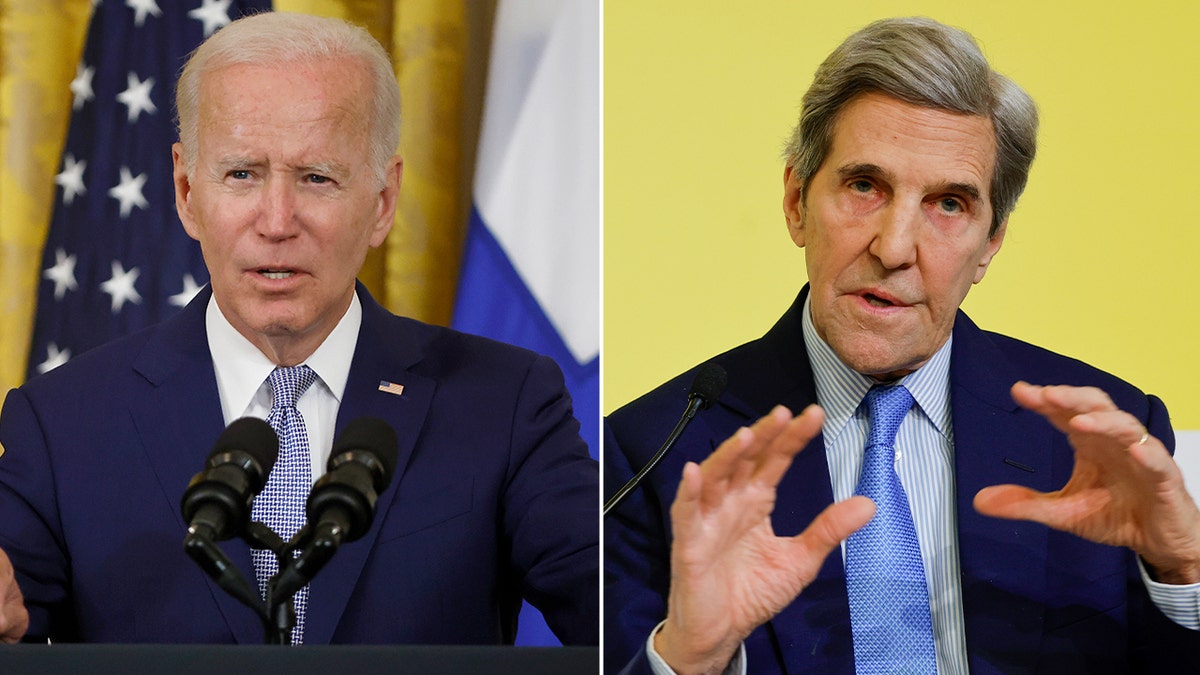
EXCLUSIVE: The White House is prohibiting senior administration officials from traveling for international energy engagements that promote carbon-intensive fuels, including oil, natural gas and coal, Fox News Digital has learned.
The guidance — which originated from the White House National Security Council (NSC) — was revealed in a Department of Energy (DOE) memo issued internally to agency staff on Sept. 15 and obtained by Fox News Digital. The memo was authored by Deputy Secretary of Energy David Turk who outlined travel restrictions and stated officials are required to obtain approval from the NSC before attending any global energy engagement.
“This guidance sets out a presumption that agencies and departments will pursue international energy engagement that advances clean energy projects,” Turk wrote in the memo. “It also outlines a process for seeking limited exceptions to pursue carbon-intensive engagements on a justified geostrategic imperative or energy-for-development/energy access basis.”
“The guidance rules out any U.S. Government ‘engagement related to unabated or partially abated coal generation,’” he continued. “Carbon-intensive international energy engagements are those ‘directly related and dedicated to the production, transportation, or consumption of carbon-intensive fuels that would lead to additional greenhouse gas emissions.'”
REPUBLICANS OPEN PROBE INTO BIDEN’S ENERGY SECRETARY AFTER POLICE CALLED ON HER EV ROAD TRIP

President Biden speaks at a United Nations climate conference on Nov. 11, 2022, in Egypt. (Sean Gallup / Getty Images)
According to the memo, carbon-intensive fossil fuels include coal, oil and natural gas.
In addition, the memo notes that the guidance became effective in November 2021 and applies to all international energy engagements. Turk issued a separate memo in early April 2022, which first outlined how the DOE would implement the NSC guidance and stated that energy engagements that promote carbon-intensive fuels may only be exempt if they advance national security or are essential to support energy access in vulnerable areas.
GOP REP CALLS FOR IMPEACHMENT INQUIRY INTO BIDEN ENERGY SECRETARY GRANHOLM: ‘SHE LIED, UNDER OATH’
Turk’s September memo updated that guidance, stating that for all future engagements, “Departments and Agencies are required to submit exemption justifications to the NSC and receive NSC concurrence before proceeding with a covered engagement.”
The DOE referred Fox News Digital to the NSC, which didn’t respond to multiple requests for comment.

Energy Secretary Jennifer Granholm speaks during a news briefing at the White House. (Alex Wong / Getty Images / File)
“The Biden Administration cannot continue to treat the fossil fuels industry as an enemy. Millions of people are employed in this industry which powers our entire nation, our military, our national security, and allows Joe Biden to jet off every weekend to his beach house,” Daniel Turner, the founder and executive director of Power the Future who reviewed the memo, told Fox News Digital in a statement.
“This war on American fossil fuels is making us poorer, weaker and more reliant on China and OPEC for our energy,” he continued. “These petty, [hyperpartisan], childish games should end before it is too late.”
BIDEN ENERGY SECRETARY REVEALS STOCK OWNERSHIP OF EV LOBBY GROUP FOUNDING COMPANY
Since taking office, President Biden has pursued an aggressive climate agenda, seeking to boost green energy technologies like solar and wind while curbing domestic reliance on fossil fuels like those listed by the administration as “carbon intensive.” Biden has issued federal goals to ensure 50% of U.S. car purchases are zero-emissions by 2030 and that the power sector is carbon-free by 2035.
However, vehicles with internal combustion engines (gasoline-powered), make up more than 99% of all cars in the U.S. and about 99% of new car sales, according to J.D. Power. And approximately 60% of electricity in the U.S. is generated from fossil fuels, mainly natural gas, while 17% is produced form wind or solar power.

Special Presidential Envoy for Climate John Kerry, right, has led large U.S. delegations to multiple international climate and energy conferences since early 2021. (Chip Somodevilla / Getty Images / File | Stefan Wermuth / Bloomberg via Getty Images / File)
“From the day I came to office, we’ve led with a bold climate agenda,” Biden remarked during a United Nations conference last month. “We rejoined the Paris Agreement, convened major climate summits, helped deliver critical agreements on COP26. And we helped get two-thirds of the [world’s] GDP on track to limit warming to 1.5 degrees Celsius.”
As part of his agenda, Biden and senior administration officials have traveled to global energy conference to boost green energy development.
CLICK HERE TO GET THE FOX NEWS APP
And officials have largely been absent from global fossil fuel summits like the World Gas Conference, which former Energy Secretary Rick Perry attended during the Trump administration. The Biden administration also opted against inviting oil and gas industry representatives to the White House Methane Summit in July.
“Tackling a challenge of this scale requires not just will and words, but action,” the American Petroleum Institute (API) said in a statement on July 26. “We are disappointed that the industries driving the most reductions in methane emissions, including the natural gas and oil industry, were not included.”
“API’s members are investing in advanced technology to detect and mitigate emissions, and thanks to industry action, average methane emissions intensity declined by nearly 66 percent across all seven major producing regions from 2011 to 2021. We continue to work with the administration to build on this progress.”






